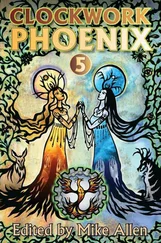P. Jones - The Pobratim - A Slav Novel
Здесь есть возможность читать онлайн «P. Jones - The Pobratim - A Slav Novel» — ознакомительный отрывок электронной книги совершенно бесплатно, а после прочтения отрывка купить полную версию. В некоторых случаях можно слушать аудио, скачать через торрент в формате fb2 и присутствует краткое содержание. Жанр: Прочие приключения, foreign_prose, на английском языке. Описание произведения, (предисловие) а так же отзывы посетителей доступны на портале библиотеки ЛибКат.
- Название:The Pobratim: A Slav Novel
- Автор:
- Жанр:
- Год:неизвестен
- ISBN:нет данных
- Рейтинг книги:3 / 5. Голосов: 1
-
Избранное:Добавить в избранное
- Отзывы:
-
Ваша оценка:
- 60
- 1
- 2
- 3
- 4
- 5
The Pobratim: A Slav Novel: краткое содержание, описание и аннотация
Предлагаем к чтению аннотацию, описание, краткое содержание или предисловие (зависит от того, что написал сам автор книги «The Pobratim: A Slav Novel»). Если вы не нашли необходимую информацию о книге — напишите в комментариях, мы постараемся отыскать её.
The Pobratim: A Slav Novel — читать онлайн ознакомительный отрывок
Ниже представлен текст книги, разбитый по страницам. Система сохранения места последней прочитанной страницы, позволяет с удобством читать онлайн бесплатно книгу «The Pobratim: A Slav Novel», без необходимости каждый раз заново искать на чём Вы остановились. Поставьте закладку, и сможете в любой момент перейти на страницу, на которой закончили чтение.
Интервал:
Закладка:
"'And now,' I asked him, 'what are you going to do?'
"'What! That, indeed, is more than I know.'
"He remained musing for some time, and then he added:
"'When a man is without any ties, when he has drunk deep the free mountain air, when the woods have been his dwelling-place and the starry heaven his roof, when he has lived the lawless life of a heyduke , can he think of cooping himself up within the narrow walls of a house and live the life of other men?'
"He stopped for a while, as if lost in his thoughts, and then he added:
"'The girl I loved is married; my brothers whom I hoped to meet again, and for whom I had bought the ground our family once owned at Chios, are for ever lost to me – doubtless, they perished upon that dreadful day – therefore, why should I live to drag on a life which henceforth will be wearisome to me?'
"'Well, then, what will you do?'
"'There is, perhaps, more work at Chios for me; I might find out the men who murdered my father – '
"'No, no; there is enough of blood upon your hands.'
"'I thought you were a Slav; as such you must know that the men of our nation never forgive.'
"'Listen; if you should happen to meet one of your brothers, if, like you, he were well off, would you not look upon his home as your own, his children – whom you might love without knowing – as your children?'
"'I should love and cherish him, indeed; I should give him the lands I bought for him at Chios. But, alas! what is the use of speaking about such a thing? It is only a dream, so listen: no man, hitherto, has loved me for my own sake, so as to risk his own life for me, as you have done, though, indeed, I have met with great kindness during the whole of my lifetime, and have had a great many friends. Well, then, will you be my brother?'
"'If I consented, would you remain with me, share my heart and my home?'
"'For ever?'
"'For our whole life.'
"'No, do not ask me that.'
"'But should you find your brother after these many years, how would you know him?'
"'We have each a Cross tattooed on our left breast, as you, perhaps, have seen – '
"'Besides this, a vanishing sign on the nape of the neck,' said I, interrupting him.
"'How do you know? Have you ever met? – or perhaps you – '
"For all answer I opened my vest and showed him the sign of the Greek Cross. His delight upon knowing me to be his brother knew no bounds.
He threw his arms round my neck, kissed me, and, for the first time in his life, he cried like a child.
"Time passed. He recovered his strength, but with it his restlessness, and his craving for revenge. We soon removed from Mostar to Ragusa, on account of his safety, and then I hoped that the change of scenery would quiet him. Alas! this larger town was but a more spacious prison. From Ragusa we went to Zara, and from there to Nona, for Ragusa itself was too near Turkey. The change quieted him for a short time; but his roving disposition soon returned, and then he talked of going to Chios. One day, seeing that he was about to put his words into execution, and feeling that I could not keep him with me any longer, I told him who the Turkish zaptieh , against whom he had fired, really was, and what blood was the last he had spilt.
"The blow was a terrible one; for days he seemed to be stunned by it. Little by little, however, it changed the current of his thoughts. He shortly afterwards gave up to the Church his ill-gotten wealth, except the Chios estate, of which he had made me a gift. Then he became a caloyer , or Greek monk, and once a year he went on a pilgrimage to Mostar, to pray upon my brother's tomb. From sinner he turned saint; but he pined like a wild bird in a cage. He lingered for some time and then he died at Mostar, where he was buried by the side of the zaptieh whom he had killed.
"We had now been to Chios to look after our vineyards and our orange groves; but I must say that this island, where I was born, is no home for me. I have lived away from it the whole of my lifetime, and the remembrances which it brings back to my mind are anything but pleasant. We were on our way to Nona, and had almost reached the goal of our voyage when that dreadful storm overtook us, and had it not been for your kindness and bravery we should all have been lost."
Evening had set in when Giulianic finished the story of his life, just when the walls of Zara were in sight; but as it was too late to land, we spent New Year's night on board the Spera in Dio .
CHAPTER V
DUCK SHOOTING AT NONA
The weather was clear and bright on the second day of the year. The sea was not only calm, but of the most beautiful turquoise blue, not the slightest cloud was to be seen in the sky, and the sun's rays were as sparkling and as warm as if it had been a glowing day in the latter part of April instead of early January. Nature looked refreshed and coquettishly radiant; her beauty was enhanced by the storm of the day before.
The red-tiled roofs of the higher houses, such as convents and public buildings, the domes and spires of churches, peeped slily over the town walls of Zara, and the brig, the Spera in Dio , which that morning lay at anchor by the wharf opposite the principal gate, the Porta San Grisogono, or Porta del Mare, as it is also called.
On the pier, along the wharf, on the strand, and within the narrow street, a motley crowd is to be seen; everyone is gaily decked out in festive apparel; this sight is one that would have rejoiced a painter, for few towns present such a variety of dresses as Zara. There were fair Morlacchi in white woollen clothes, their trousers fitting them like tights, with their reddish hair plaited into a little pig-tail; tall and swarthy, long-moustachioed pandours , handsome warlike men, that any stranger might mistake for Turks, their coats laced and waistcoats covered with silver buttons, bugles and large coins, glittering in the sunshine, that make them look, at a distance, as if dressed in armour; then there were peasants, whose cottages are built on the neighbouring reefs, clad in tight blue trousers, trimmed in red, red waistcoats laced in yellow, and brown jackets embroidered in various colours; country girls in green dresses, red stockings and yellow shoes. These men and women all wear shirts and chemises prettily stitched and worked in all possible colours of silks and cottons. Some of these embroideries of flowers and arabesques are of the richest dyes, and the cherry-red is mingled with ultramarine blue and leek-green; they are sometimes interwoven with shells or tinsel; their stockings and leggings are bits of gorgeous tapestry, whilst the women's aprons are like Eastern carpets. As for the jewellery, it varies from rows of arangoes to massive gold beads studded with pearls and other precious stones, similar to those which the Murano manufactories have artistically imitated.
Amongst these peasants are to be seen tall, stately white friars, portly grey friars, and stout and snuffy-brown friars; priests in rusty black, priests in fine broadcloth, with violet stockings and shoes with silver buckles, priests of high and priests of low degree. Then Austrian officers in white jackets, Croat soldiers in tight trousers, Hungarians in laced tunics. Lastly, a few civilians, who are very much out of place in their ungainly, antiquated clothes.
On the morrow, it was found that the Spera in Dio had been much damaged by the late storm, and that it was impossible for her to sail without being thoroughly repaired. The little ship-yard of Zara was too busy just then to undertake the work, so Giulianic persuaded the captain to proceed onwards as far as Nona, where he could get shipwrights to work for him. Therefore, two days after their arrival at Zara, they set sail for Nona, together with their shipwrecked guests. The captain and his two mates had now become intimate friends with Giulianic and his family, who did their utmost to try and entertain the young men.
Читать дальшеИнтервал:
Закладка:
Похожие книги на «The Pobratim: A Slav Novel»
Представляем Вашему вниманию похожие книги на «The Pobratim: A Slav Novel» списком для выбора. Мы отобрали схожую по названию и смыслу литературу в надежде предоставить читателям больше вариантов отыскать новые, интересные, ещё непрочитанные произведения.
Обсуждение, отзывы о книге «The Pobratim: A Slav Novel» и просто собственные мнения читателей. Оставьте ваши комментарии, напишите, что Вы думаете о произведении, его смысле или главных героях. Укажите что конкретно понравилось, а что нет, и почему Вы так считаете.












